This article was co-authored by Trudi Griffin, LPC, MS. Trudi Griffin is a Licensed Professional Counselor in Wisconsin specializing in Addictions and Mental Health. She provides therapy to people who struggle with addictions, mental health, and trauma in community health settings and private practice. She received her MS in Clinical Mental Health Counseling from Marquette University in 2011.
There are 16 references cited in this article, which can be found at the bottom of the page.
This article has been viewed 25,517 times.
If it is difficult enough to get out of bed when you feel depressed, thinking about enjoying yourself may feel unattainable. On the other hand, getting up and doing things can be a first step in feeling better. With the right help and motivation, it may be possible to better manage depression and find greater joy in life.
Steps
Improving Motivation and Thinking
-
1Start with small activities. You don't have to enjoy every activity you do when you're depressed. However, you can begin to reward yourself for the activities you accomplish and learn to find enjoyment in that practice. Even doing something small, like getting out of bed, going outside for a walk, or getting to work on time can be rewarded. Accomplishing small achievements can feel good and encourage you to keep making goals.
- Reward yourself for your successes. This can include taking a bath, downloading some new music, or lighting a fragranced candle.
- As you reward yourself for these small tasks, notice how you feel. You may feel a sense of accomplishment or an increase in your ability to do things. Keep the momentum going by making more and more goals.
-
2Play mood-enhancing music. Music can help shape your mood and ease depression.[1] If you want to motivate yourself to be productive, feel happier, increase your energy, and enjoy the moment more fully, look to music to boost your mood. Put on a song that makes you feel happy and joyful or that helps you release the past.
- You may have a favorite song that always makes you feel good or a song from a happy period of your life that always brings a smile to your face.
- Think about a song that you enjoy singing along to and put it on. Notice how you feel after listening to the song.
- For more information, check out How to Treat Depression with Music Therapy.
Advertisement -
3Say a mantra. A mantra is something you say either to yourself or out loud that encourages you to live positively. You can say a mantra every morning when you wake up, or before you go to work or to other activities. If you're having a hard time getting motivated, say something to calm, reassure, and encourage yourself. Saying one reassuring word can help you from thinking about your past or worrying about your future.[2]
- Choose a word or phrase like, “I am calm” or “Doing activities makes me happy” or “Enjoy.”
-
4Observe and change your thoughts. If you're at an activity and thoroughly not enjoying it, listen to the thoughts going through your head. Are they relentlessly negative? If so, they are influencing your experience and enjoyment of the activity. Listen to your thoughts, then ask yourself, “Is this true? Does this matter? Is there a different way to look at it?” If you catch yourself in negative thoughts, replace them with more positive thoughts.[3]
- If you overgeneralize (“Going to social events is never fun”), ask yourself, “What parts of this activity could be fun? What things may other people enjoy?”
- If you focus mainly on negative things and don't acknowledge the positive things, start noticing what goes right. Maybe one thing went wrong, but there were three or four more things that went well.
- If you often jump to conclusions (“They must think I'm stupid”), ask yourself, “Is that a reasonable evaluation?”
- If you get lost on the “shoulds” and “should not haves”, remind yourself to stay present. Ask, “Is it fair to keep a past version of myself to this standard?”
-
5Avoid ruminating. Going through past events and wondering about alternative possible outcomes is not part of anyone's healing process from depression. If your mind is stuck in the past, there's no way for you to enjoy the present.[4]
- If you find yourself asking, “What if?...” find a way to distract yourself. This can include petting your cat or dog, reading a book, or going on a walk. Avoid getting trapped in rumination.
- Remind yourself that ruminating on the past doesn't help your future. Say to yourself, “Things didn't go the way I wish they would have, but I have the power to influence how things go right now.”
Finding Enjoyable Activities
-
1Exercise. Exercise is a great way to improve mood, bust stress, and feel good.[5] There are lots of ways to exercise that can be fun and enjoyable. If you dread going to the gym, you can exercise in lots of other ways, such as walking the dog, going on a hike, or taking a bike ride. Think about what activities you enjoy (or used to enjoy) and add some movement to them. Listen to music while you clean and dance along, or play catch with your dog. Do an activity such as gardening or yoga.
- Regular exercise is an effective antidepressant, and can be as effective as medication![6]
-
2Get out in nature. Nature and the outdoors can be very healing. Being in nature helps to reduce stress and increase positive thinking. Especially if you isolate yourself when you feel depressed, a change of scenery, fresh air, and being in nature can be healthy and enjoyable.
- Go for a hike, start a garden, or sit by a tree and read. Or you can find some grass, take your shoes off, and relish in the feeling of your bare feet connecting with the Earth.
- Invite a friend to join you at the park, or plan a picnic with family.
-
3Paint, draw, color, and do some art. You may struggle to talk about your feelings, and if so, try using a creative outlet to express your emotions. Sing, write poems or short stories, play an instrument, draw, color, paint, or sculpt. Find a creative outlet that you enjoy and go do it!
- Find an activity that is enjoyable and that allows you to have creative influence. This can also include designing and constructing a playhouse, or making objects out of wood or metal.
-
4Find relaxing activities. Engaging in daily relaxation helps to reduce stress, cope with depression, and boosts feelings of well-being.[7] Even if you feel like you are “lazy” all day due to your depression, set aside 10-20 minutes to do some relaxation. Choose an activity that you enjoy and that helps you feel relaxed.
- Engage in yoga, meditation, deep breathing, qi gong, tai chi, or another relaxing activity.
- For more information, check out How to Treat Depression With Meditation and How to Ease Depression with Relaxation Techniques.
-
5Find joy in everyday activities. While you may feel like life is mundane or boring, try to see the joy, happiness, and excitement in each moment. While it may feel ordinary now, you may reflect upon certain moments with fondness in the future. This is especially true with relationships and cherishing moments with loved ones. Living in the present and not taking moments for granted can lead to higher satisfaction in life.[8]
- As you go about your daily activities, think about how they benefit you. For example, you may dread your morning routine, but instead, give thanks for the ability you have to take care of your body by cleaning it, nourishing it, and maintaining it.
- When doing chores or other undesired activities, be present as you complete the activity. Instead of thinking, “I hate mopping floors,” be conscious about the smell of the solution, the feelings in your body as you mop, the visual changes in the floor below you. Being present in this way can bring you to the now and remove negative feelings.
Enjoying Activities with Others
-
1Connect with other people. While you may want to be alone and isolate yourself, this is not the way to cure depression. It may feel like an effort to see friends or family, but motivate yourself to get out. Ask a friend to meet up. You don't necessarily need to “do” anything, but being with someone else can be comforting.[9]
- The hardest part is getting the motivation
- Meet up with a friend who is a good listener. Even if you meet up to watch a movie or tv show marathons, it can be helpful to be with someone face-to-face.
-
2Go to social events. Being around other people may make you feel like you will be drained, yet it can be helpful in easing your depression to be around others. Try to keep up with one activity each week, such as playing cards with friends or going to your religious or spiritual services. Even if you don't feel like it, make an effort to go.[10]
- If you're having difficulty motivating yourself, say, “I feel depressed right now, and I want to ease my depression. Being with other people can help.”
-
3Introduce more play in your life. Using play and laughter can help you cope with difficult and disappointing times, and makes you feel good both in the moment and afterward.[11] Maybe you have children, grandchildren, or nieces and nephews. Spend some time playing with children as a way to open play into your life.
- Volunteer with a children's after school program or offer to babysit for your friend.
- If children aren't your thing, then organize a regular game night with friends.
-
4Care for a pet. Caring for a dog, cat, or other pet can help you feel connected to another being while providing comfort and affection. A pet can be helpful if you feel isolated or unable to connect with people. It can feel nice to feel needed and to reach outside yourself and care for another being.[12]
- Consider rescuing an animal at the shelter. For more information on adopting a pet, check out How to Adopt a Pet from a Shelter.
- If you're not ready to commit to having a pet, offer to pet sit for a friend going out of town or volunteer at an animal shelter.
Seeking Professional Help
-
1Seek therapy. If you've tried to engage in activities yet feel numb, hopeless, helpless, drained, or disconnected, it may be time to see a therapist. You might feel like all of your efforts have been useless. Yet, depression is treatable and help is available.[13] It's possible for you to feel better and live a life of enjoyment.
- A therapist can help you identify your triggers for depression, work on coping strategies, and help you change your negative thought patterns to more positive and beneficial thought patterns.[14]
-
2Consider medication. Sometimes, people benefit from both therapy and medication. While medication won't cure your depression, it can help you cope with symptoms more effectively. Medication can be helpful for severe depression, yet does not appear as effective with mild or moderate depression.[15]
- Most people with severe depression who take medication do not report a complete loss of symptoms.
- Depression medication is only prescribed through a knowledgeable physician, such as a psychiatrist or family doctor well versed in psychological medications.
-
3Attend group therapy. You may be hesitant to see an individual therapist, but group therapy can be beneficial. You can learn a lot from hearing about other people's experiences and by discovering new ways to cope. It can be helpful to know that you are not alone in your depression. Group therapy can also provide support and lead to better self-awareness.[16]
- Call your local mental health clinic and/or your insurer to see if there are any groups for therapy available near you.
References
- ↑ https://www.health.harvard.edu/mind-and-mood/how-music-can-help-you-heal
- ↑ https://www.psychologytoday.com/blog/urban-survival/201508/how-mantras-calm-your-mind
- ↑ http://www.helpguide.org/articles/depression/dealing-with-depression.htm
- ↑ https://www.berkeleywellbeing.com/stop-rumination.html
- ↑ http://www.apa.org/monitor/2011/12/exercise.aspx
- ↑ https://www.ncbi.nlm.nih.gov/pmc/articles/PMC474733/
- ↑ https://advancedpsychiatryassociates.com/resources/blog/solo-activities-for-depression/
- ↑ https://www.helpguide.org/articles/depression/coping-with-depression.htm
- ↑ http://ccare.stanford.edu/uncategorized/connectedness-health-the-science-of-social-connection-infographic/
- ↑ https://www.ncbi.nlm.nih.gov/pmc/articles/PMC6125010/
- ↑ http://www.helpguide.org/articles/emotional-health/benefits-of-play-for-adults.htm
- ↑ https://www.newportacademy.com/resources/well-being/pets-and-mental-health/
- ↑ https://www.nimh.nih.gov/health/topics/depression#part_2257
- ↑ https://www.psychologytoday.com/blog/compassion-matters/201110/eight-ways-actively-fight-depression
- ↑ http://www.helpguide.org/articles/depression/antidepressants-depression-medication.htm
- ↑ http://psychcentral.com/lib/5-benefits-of-group-therapy/

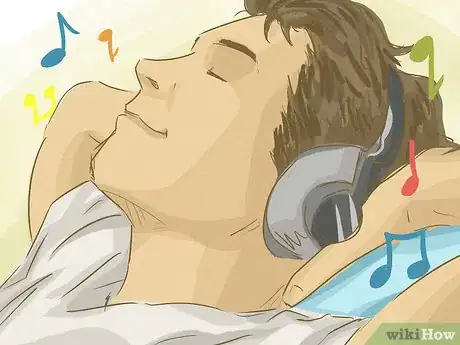

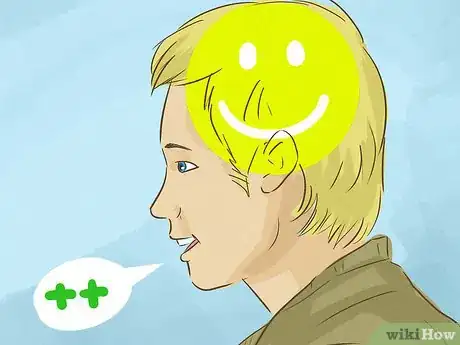


-Step-2-Version-2.webp)

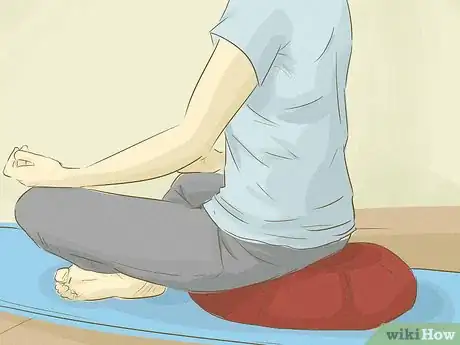
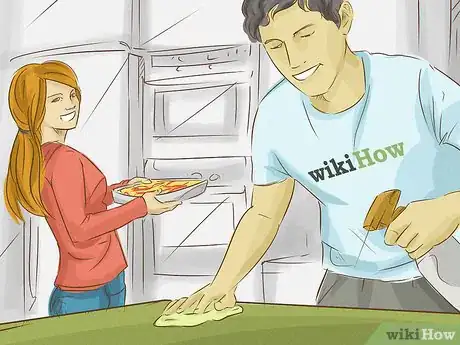
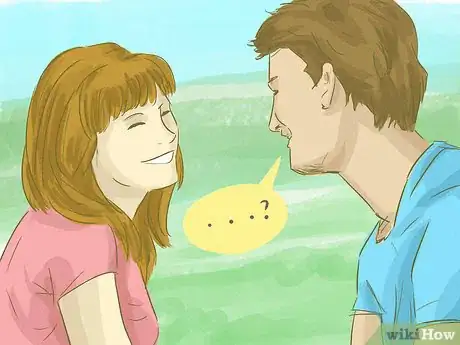

-Step-8-Version-3.webp)

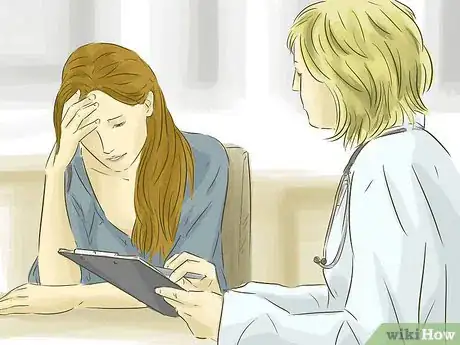
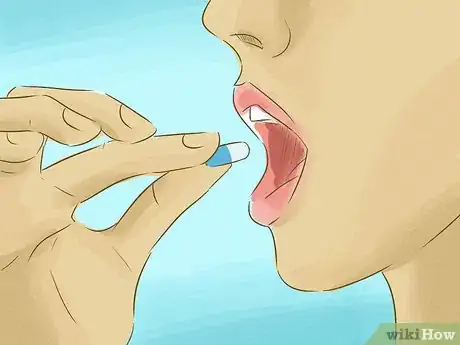
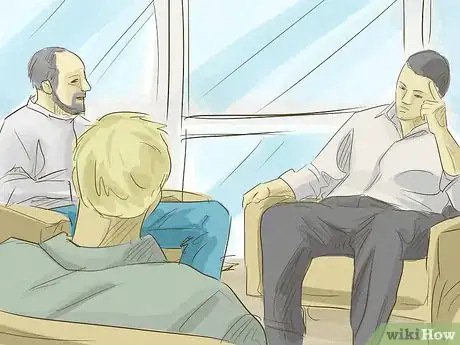
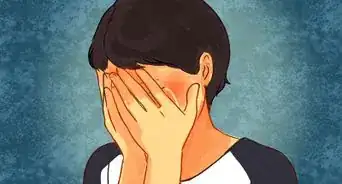




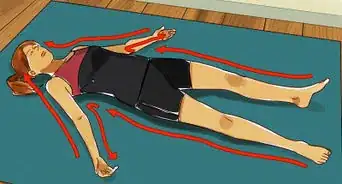
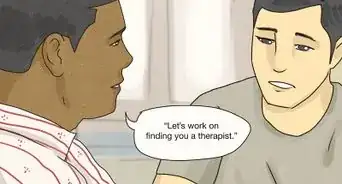
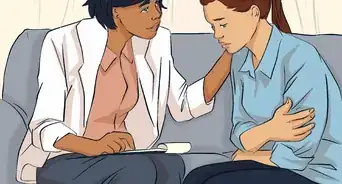
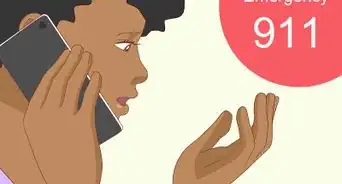
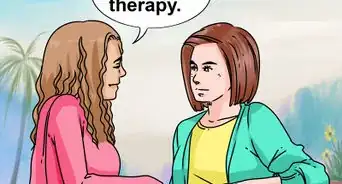
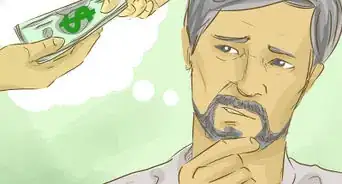

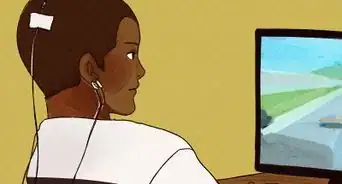
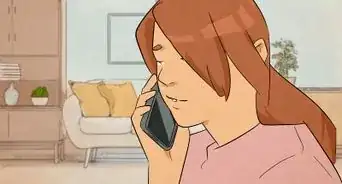














































Medical Disclaimer
The content of this article is not intended to be a substitute for professional medical advice, examination, diagnosis, or treatment. You should always contact your doctor or other qualified healthcare professional before starting, changing, or stopping any kind of health treatment.
Read More...